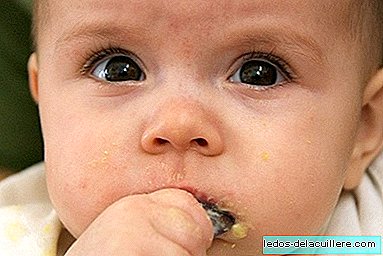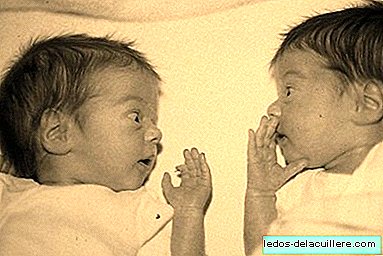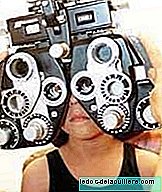We know that the amount of hours of sleep that our children have something very important that we must respect, because in addition to having a good rest, it helps them in their development and to improve their quality of life, as well as their mental and physical health.
Sleeping less hours than necessary can affect its development and have long-term consequences. Now a recent study shows us that if children sleep less hours than necessary, the risk of type 2 diabetes may increase.
The study was conducted by St. George's University in the United Kingdom, with the purpose of find the relationship between the number of hours of sleep in children and the possibility of suffering from type 2 diabetes in the future. To carry it out, 4,525 children of different races and were 9 or 10 years old were involved.
The parents of the children were asked to indicate the number of hours their children slept, from the time they went to bed until the next morning when they got up to go to school. On average, children slept 10 hours a night and 95% slept between 8 and 12 hours.
In addition, blood samples were taken, as well as the physical measurements of each child (height, weight, blood pressure), and the different markers used for the study were adjusted according to age, month, sex, race and socioeconomic level of each child.
After analyzing everything, a relationship was found between sleep patterns and risk indicators for diabetes. It was found that Children who slept less hours were more likely to have higher body mass indices and insulin resistance, which are risk factors for type 2 diabetes. On the contrary, children who slept more hours tended to weigh less and have less insulin resistance.
How much should children sleep?

In addition to the results of this study, not sleeping the necessary hours can affect in other aspects the lives of our children. Let's remember first how much children should sleep according to their age:
- Children from 4 to 12 months: 12-16 hours
- Children from 1 to 2 years old: 11-14 hours
- 3 to 5 years: 10-13 hours
- 6 to 12 years: 9-12 hours
- 13 to 18 years: 8-10 hours
Based on these recommendations we must create a daily routine so that they always have the necessary hours for a good rest. Based on this, we can calculate the best time for each child to go to bed and thus ensure that they get enough sleep.
Tips for creating a bedtime routine

An important point that I consider necessary to mention is that each child is different. While the list I mentioned serves as a guide, there will be days when for some reason our children need more or less sleep than indicated.
An easy way to make our children get used to bedtime is the create a routine before bedtime and stick to it. The latter is very important, since sometimes the change of routine can be a cause of stress for a child and cause confusion or discomfort. The routine to prepare for sleep can be very easy, especially if we start it when they are still babies. For example: after dinner we give you a bath and maybe a massage or read a story (depending on how old you are).
Part of the routine is the create the environment conducive to sleep. When they are babies try to lower your voice a little and if possible dim the light in your room. You can also try putting relaxing music with some application of your mobile.
In the case of slightly older children it is important to continue the routine. An important aspect to consider regardless of the age of our children is the use of screens before bedtime. It is recommended turn off screens throughout the house an hour before bedtime, because it is proven that they are enemies of good sleep.
Another important aspect to consider for bedtime is feeding, because certain foods can alter the quality of sleep. Avoid fatty foods and foods with many spices. You should also avoid sweet foods, as well as soda and caffeine-rich foods. Ideally, have a light and low fat meal.
Photos | iStock
Via | Parents
In Babies and more | Eye with diabetes: because it must be detected in time, also in children and pregnant women, does your child still sleep? Seven benefits of napping in children












